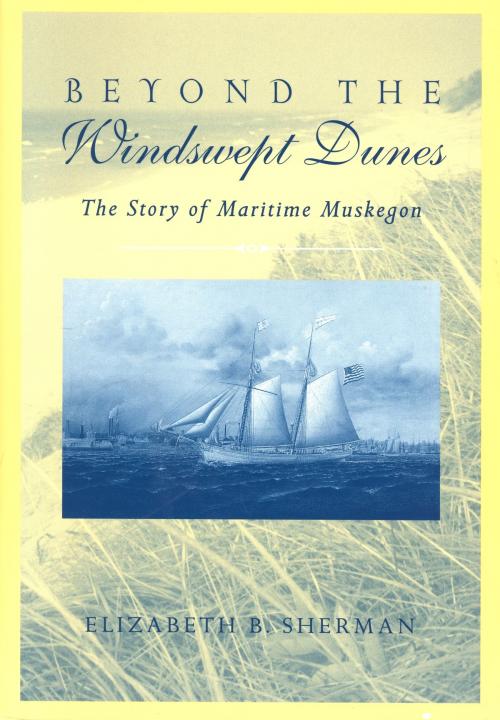Beyond the Windswept Dunes
The Story of Maritime Michigan
Nonfiction, Reference & Language, Transportation, Ships & Shipbuilding, History, Americas, United States, State & Local| Author: | Elizabeth B. Sherman | ISBN: | 9780814340011 |
| Publisher: | Wayne State University Press | Publication: | June 1, 2003 |
| Imprint: | Wayne State University Press | Language: | English |
| Author: | Elizabeth B. Sherman |
| ISBN: | 9780814340011 |
| Publisher: | Wayne State University Press |
| Publication: | June 1, 2003 |
| Imprint: | Wayne State University Press |
| Language: | English |
Beyond the Windswept Dunes takes the reader into a world of maritime adventure as it was experienced by the sailors, passengers, rescue workers, shipping magnates, industrialists, and many other people whose livelihoods revolved around Michigan’s port city of Muskegon. At one time the leading edge of westward expansion, Muskegon was a place where lumbering and lakers merged and where rails met decks, a place situated midway along the coast of a great and sometimes stormy inland sea. Here Elizabeth Sherman offers both a shipping history and a portrait of the city. The events covered range from the visit by the British sloop H.M.S. Felicity in 1779 through Muskegon’s boom years as "Lumber Queen of the World," from the city’s revitalization with the opening of the St. Lawrence Seaway to its recent establishment of a floating museum complex for historic naval vessels. The book’s focus is on the ships themselves—such as the Lyman M. Davis, Salvor, Highway 16, and Milwaukee Clipper—vessels that were noteworthy for being the first of their kind or for their popularity, unusual and distinctive careers, or tragic losses. A number of ships were lost in Lake Michigan near Muskegon Harbor, and the stories of some of the most notable wrecks and rescue missions appear in this book, including the psychic intervention that led the William Nelson to the exciting rescue of the crew aboard the sinking Our Son. The book offers many first-hand statements of shipwreck survivors and other witnesses, lending an authentic voice to the accounts.
Beyond the Windswept Dunes takes the reader into a world of maritime adventure as it was experienced by the sailors, passengers, rescue workers, shipping magnates, industrialists, and many other people whose livelihoods revolved around Michigan’s port city of Muskegon. At one time the leading edge of westward expansion, Muskegon was a place where lumbering and lakers merged and where rails met decks, a place situated midway along the coast of a great and sometimes stormy inland sea. Here Elizabeth Sherman offers both a shipping history and a portrait of the city. The events covered range from the visit by the British sloop H.M.S. Felicity in 1779 through Muskegon’s boom years as "Lumber Queen of the World," from the city’s revitalization with the opening of the St. Lawrence Seaway to its recent establishment of a floating museum complex for historic naval vessels. The book’s focus is on the ships themselves—such as the Lyman M. Davis, Salvor, Highway 16, and Milwaukee Clipper—vessels that were noteworthy for being the first of their kind or for their popularity, unusual and distinctive careers, or tragic losses. A number of ships were lost in Lake Michigan near Muskegon Harbor, and the stories of some of the most notable wrecks and rescue missions appear in this book, including the psychic intervention that led the William Nelson to the exciting rescue of the crew aboard the sinking Our Son. The book offers many first-hand statements of shipwreck survivors and other witnesses, lending an authentic voice to the accounts.















